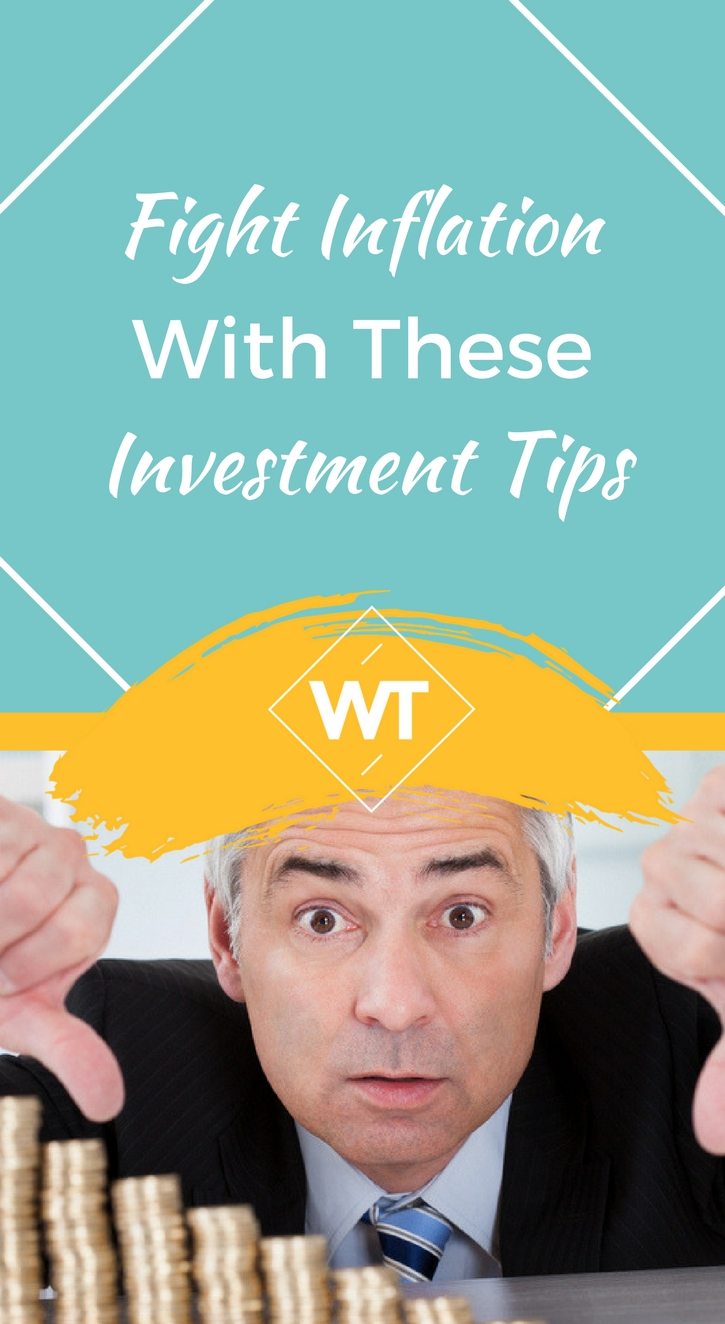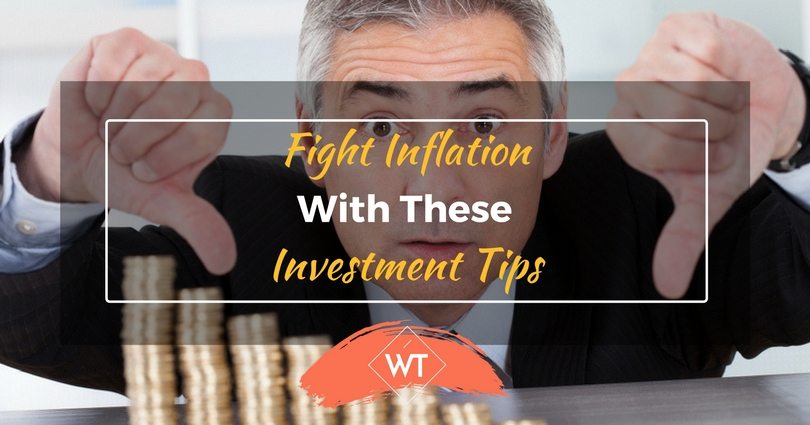Fight Inflation with these Investment Tips

 Inflation has been one of the worst enemies for the common man in India. It causes markable ups and downs in the economy. Understanding this is crucial because inflation can reduce the value of investment returns. Let’s learn how to fight inflation in India with these investment tips.
Inflation has been one of the worst enemies for the common man in India. It causes markable ups and downs in the economy. Understanding this is crucial because inflation can reduce the value of investment returns. Let’s learn how to fight inflation in India with these investment tips.
The wholesale price index in May 2012 rose an annual 9.06% although most analysts expected it to be just above the 8.5% mark. Recently there has been a hike in petrol prices on several occasions within a year.
Some of the hike is attributed to global crude oil prices, but there is a significant chunk of taxes, duties and levies on petrol which makes is more expensive for common people.
This is just the tip of the iceberg, because we are looking at only half the story, because the real inflation is the consumer price inflation (CPI) which is in double digits, and is hardly published or discussed in media.Increase in price of food, fuel, utilities, etc creates a big hole in your pocket.
What do You Infer From This?
We know that it pinches it in one way or the other whether you fill petrol at a fuel station, buy groceries, or travel on a holiday. Let’s take a small example to understand how it affects your finances.
Assume that you have Rs.100 today as savings. If you invest in a bank deposit at current rates you may get 9% per annum (some banks offer higher or lower rates). If we assume inflation to be 9% then probably your effective return on your bank fixed deposit is zero per cent.
In some cases you might end up with a negative return – say a case where inflation is 9% while deposit earns just 7.5%, which means your net return is minus 1.5%. We are actually using WPI here for illustration purposes. If CPI were to be considered the situation would be worse or pathetic.
The way inflation affects you depends on the type of securities you hold. Inflation refers to a sustained increase in the price levels of commodities.
Inflation Issues with Fixed Income Schemes
Fixed income schemes such as bank deposits, government bonds, company fixed deposits, NSC, small savings schemes of Government and Post Office and others are all prone to interest rate and inflation risk. All of these instruments can only generate low or moderate returns if I have to put it in simple terms.
In high interest rate season like at present we can even find banks offering more than 10% on deposits, but remember that inflation is also higher at 9% or so thereby making real effective returns much less. Here we are not even talking about taxation which will further reduce returns.
How to Address This Issue of Low Returns?
There is one way to address this, which is investing for a long term say 3 years or so, which means you get to lock in a higher rates (say 10% or so) for a longer time.
So when rates peak over the next few months and start falling in the next you will still get higher rate of say 10% although the market rates may start falling.
However, the catch is your ability to lock in funds for a medium to long term. Moreover, if you investment value is high it makes sense, otherwise the returns will just be paltry. Even in case of long term investing inflation and taxes start eroding your returns leaving you with peanuts.
For instance Mr. Shyam who invests Rs.1 lakh at 10% interest rate would get Rs.10,000 as earnings during the year, but his friend Mr. Rajan who just invests Rs.10,000 would just get Rs.1,000 in a year, which is a paltry sum considering today’s money value. But both are equally bad if we consider taxes and inflation.
Tax Angle: The second issue is the tax angle. Since interest on deposits are taxable, if we assume Mr.Shyam in the above example is in a 30% tax bracket his post return would be 7% (i.e.10% adjusted for 10% tax rate).
Effective Returns: Now if we factor in the inflation rate of 9% Shyam is only getting -2% return (7%-9%).
Investments and Inflation
There are various asset classes that can help you fight inflation, due to their inherent ability to generate higher returns. But these may come at the cost of time, risk and other factors. These asset classes may require your patience or ability to invest long term and have the appetite for losses. Some of the asset classes that can help you fight inflation are:-
- Stocks (Equities)
- Real Estate
- Gold
Stocks or Equity
Stocks can deliver 15-20% in a year in normal market conditions considering a good economic and corporate performance scenario. However, there is a potential to make higher returns too. However, in bad times like in late 2008 Sensex had even plunged to levels of around 10K or less from 20K levels seen in early 2008.
Today Sensex is rougbly around 18K mark and could be higher or lower as you are reading this. This is the risk that one should be able to digest. However, those who invested in late 2008 and early 2009 were able to earn returns in excess of 100% which means more than doubling one’s investment.
Stocks are recommended because they can generate higher returns to insulate you from inflation.
Secondly some stocks in sectors such as oil exploration, commodities, etc can actually generate better returns during inflationary scenario as they benefit from higher realizations when commodity prices go up.
Real Estate
Real estate markets also go through similar cycles, which can be longer. For instance real estate sector had a few issues in mid 2008 which lasted for more than a year until it stabilized in mid 2010.
In residential real estate one can expect around 10-15% appreciation in the property prices in normal markets.
In good markets the appreciation can be super fast at 25% or even higher. In bad markets prices may increase marginally or go down by 10% or so. However, there has not been a dramatic market wide fall in property prices except in mid to late 2008 and in 2009 due to the economic crisis. Why invest in real estate?
Gold
Gold is normally expected to generate returns in tandem with inflation, barring cases where a fear of crisis leads to people rushing to precious metals in search of a safe heaven.
If inflation is around 9% Gold should also generate returns more or less in that range, but due to its safe heaven appeal Gold managed to generate in excess of 20% in 2009 and 2010, which is attributed to high volatility and global uncertainties.
Gold may not beat inflation like stocks or real estate but it can definitely help provide protection to portfolio in case of economic and financial crisis situation.
Most financial advisors recommend investors to invest up to 10% in Gold. I would recommend that this can go up to 25% provided investment is via Gold ETFs. Today economic uncertainties are becoming quite common. When all financial assets fail one can back on gold to atleast preserve value.
In terms of inflation and purchasing power the value of gold remains constant. For example if one gram of gold in the past could fetch 80 kgs of rice in the 1970’s, even today the same gram of gold would be able to fetch 80 kgs, or rather more rice. This is one of the reasons people in ancient times used Gold as a currency.
Recently we see a lot of Breaking News on television about Rs.1 lakh crore or more found in a temple’s lockers consisting of gold, other precious metals, and cash. This is not surprising because money loses value overtime whereas Gold appreciates in value overtime. Does it mean all fixed income schemes are useless or crap?
Not really, these are basically savings schemes where the intent is just to park your savings for a short or medium term. Fixed deposits, government securities, etc are more suited for people requiring high level of safety, and who don’t really care about returns.
However, even in case of fixed income instruments one can invest regularly or systematically like a recurring deposit or use Laddering Strategy (where you invest periodically and reinvest upon maturity).
Although these strategies can create income or cash flows these can be paltry sums unless one invests several lakhs. The rate of return is obviously lower, however for people who have large sums and just want to preserve their wealth fixed income schemes are still a good way to preserve wealth rather than build wealth. On the other hand equity, real estate and precious metals have the potential to appreciate or create wealth.
Mix and Match Investments
The final lesson is to make sure that you have the right mix of investments to mix and match safety, returns and liquidity. This means your fixed income schemes are still part of the overall financial plan if safety and liquidity are required.
Although equities could be liquid, they are meant for medium to long term investment which will help build wealth. Savings and interest earnings are not the best ways to build wealth although it may be a stepping stone or a starting point.
Building wealth will require investing in assets that appreciate in value and deliver regular returns. Stocks, real estate and gold generate returns through appreciation in value, which enables you to buy or invest at lower prices and sell at higher prices in future, or hold them in your portfolio for long term.
Gold is not a typical financial investment, so its drawback is its inability to earn interest, dividend, cash flows, etc. However, stocks are known to provide various forms of income such as dividend, bonus and price appreciation to name a few.
Similarly real estate also provides rental income and capital appreciation.The uniqueness about real estate is its ability to provide shelter and utility value which creates an emotional bonding as well.
Conclusion – Fight Inflation
If you want to have an investment plan which can withstand the crisis in 2008 or so, you need to have a provision for a good amount of emergency funds (3-6 months expenses), and invest the remaining savings in different asset classes gradually.
For people who are not comfortable investing in stocks, a systematic investment plan or an index ETF may be a good entry point.
However, selecting safe stocks from the index basket would also be a good idea. However, this is just a small piece of the whole plan. For a holistic plan approach a financial advisor, who will guide you through a step-by-step process and explains the pros and cons of various options.
For people who are keen on knowing various financial products and their features, I would recommend reading The Economic Times Wealth which is published every Monday.
Although it may not provide you a solution, it can help you become aware of various investment products and their features. It will help you keep abreast of latest developments in the field and also provide us an overall picture of Investments. This will inturn help you to fight inflation.








Leave a Reply